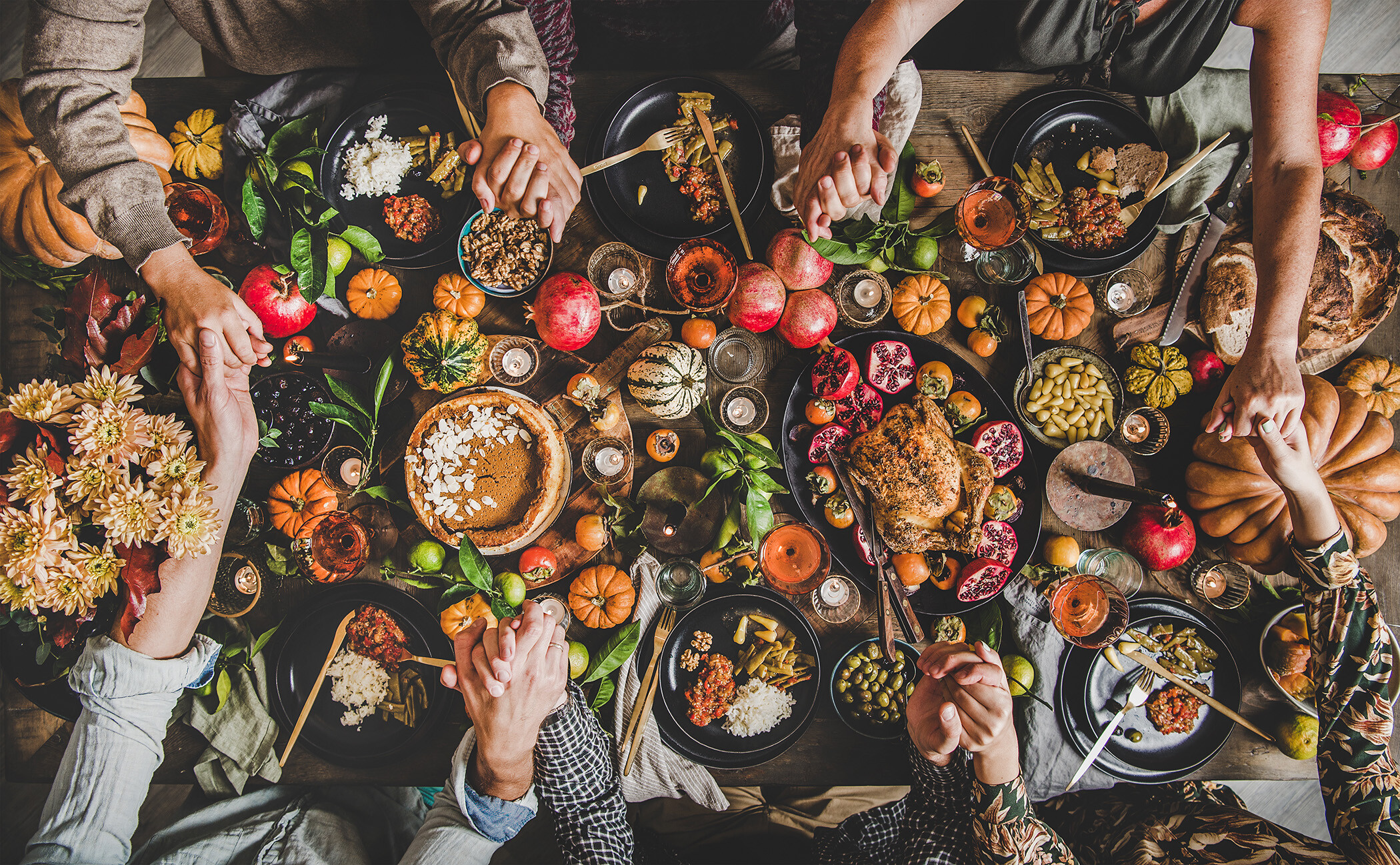
This Thanksgiving, Come to the Table
My dish sits on the table in front of me, piled high with mashed potatoes, stuffing, and glazed carrots: the flavors of home. To my left and right are my siblings and in-laws, nephew and nieces passing gravy and commenting on the green beans. This family of mine—pieced together and added to through marriage and friendship—rings with the melody of home and belonging.
The dinner table has become a place of great significance for me. There is something profound about bringing a family member, whether sister or second cousin, through the door and simply telling them to have a seat and be fed. At a rich dinner table, where food and joy abound, where everyone comes as they are and enjoys their own seat, we see a fractal of a more profound feast.
The best aspects of the Thanksgiving table remind us of the communion and celebration we share at the Lord’s Table.
We Come As We Are
At the dinner table of my childhood home, I experienced the freedom that comes with simply sitting, with being loved for who I am and not who I wish I were. At that table, the guises I’m prone to carry come off, and I quench my thirst at the well of acceptance, exchanging food and self in a way that fills my deepest longing. There is no room for pretense or false impressions within my immediate family, nor is there any pressure to earn my place. At the table of my childhood home, I am known deeply and loved fully.
The very best aspects of the Thanksgiving table remind us of the communion and celebration we share at the Lord’s Table.
At the Lord’s Table, too, there is no space for disguise. I’m often tempted to come to the Lord’s Table as something different from what I am, to wear airs of virtue or competency that say: I deserve to be here. I’ve earned a place. But the gospel doesn’t work that way. The gospel provides hope for the present, even stained and shattered, version of ourselves. When we come to the table exactly as we are, wearing both Christ’s beauty and our flaws, we are met by the kindest, most gracious host—one who affirms to us that we most definitely belong, simply because we are his.
Just as we don’t feast alone, we also never take communion alone: it is always alongside brothers and sisters. We walk forward together, reminding one another of our need for both salvation and fellowship.
We Come Repenting
When we gather around the Thanksgiving table and share what we’re thankful for, I’m often struck by the general ingratitude with which I live the other 364 days of the year. The Lord’s goodness and blessings are like air: all-encompassing and found in every crevice of life. Our Thanksgiving table is a place of thanks, and it calls me to repent of my habitual ingratitude.
When we gather around the Thanksgiving table and share what we’re thankful for, I’m often struck by the general ingratitude with which I live the other 364 days of the year.
The Lord’s Table, likewise, brings me face-to-face with my own sin. As we dwell on the perfect humility and blameless life of Jesus, our own pride, arrogance, and transgressions become glaringly evident. Thankfully, the Lord’s Table also points me to atonement. At this table I ponder the most poignant love of all: his body, broken for mine; his blood, shed for mine. In the death and resurrection of Jesus, we are made new.
We Come to Be Filled
Thanksgiving is about feasting: an entire day dedicated to celebrating and enjoying delicious food. We come to the table with an air of expectancy: we are there to be fed and fed well. When we pass dishes and fill plates, we remind one another of our continual dependence on food for bodily survival. As we share in good conversation and fellowship, we remind one another of the ways we depend on community for thriving hearts.
During our church service, sweet hymns slowly fill the sanctuary, and I walk forward to the Lord’s Table to feast. I come remembering that just as my body needs food, so my soul needs the nourishment and healing presence of a Savior.
We Are Met with Abundant Provision
Growing up, Mom used to delight in making feast foods we loved: mushroom stuffing, parmesan green beans, herbed roasted potatoes. She responded to our need for food with plentiful provision specific to our taste buds. As a result, we felt known and cared for. Dad led wonderful discussions around our table, and we lingered long after our dishes were empty, feasting on good conversation and exchange of ideas.
I come remembering that just as my body needs food, my soul needs the nourishment and healing presence of a Savior.
Each time I approach the Lord’s Table, I wonder again if there could really be a place there for me; and each time I am met with a resounding yes. We come forward deserving only crossed arms and meager portions; instead we receive abundant bounty. Jesus meets our needs—to be forgiven, to be restored, to belong—joyfully and completely. He not only tolerates our presence at his table; he revels in it.
The feast we enjoy at Christ’s table in our churches today is only a taste of the celebration we will one day experience. We anticipate the fuller, more beautiful feast in eternity, with Jesus, when “everything sad [is] going to come untrue.”
When we gather around the Thanksgiving table this year—whether with a big or small group—let’s feast out of a place of abundance and acceptance, celebrating both our needs and also the way they have been provided for.
Tags: article, christian living, thanksgiving, come to the table, gospel coalition

